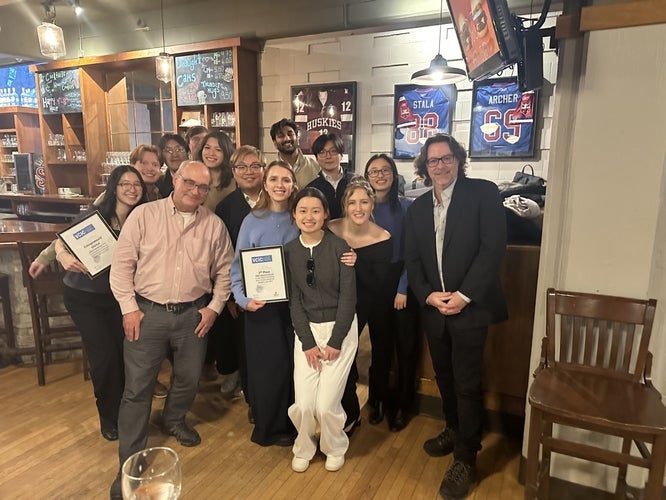Walking into the Venture Capital Investment Competition (VCIC) Nationals, I wasn’t sure what to expect. It’s one thing to analyze startups in a classroom setting – but pitching investment decisions in front of seasoned venture capitalists? That’s a whole different ball game.
Over multiple rounds of due diligence, term sheet development, and a high-pressure pitch, our team secured second place; a result that, I believe, reflected both our preparation and our ability to adapt under pressure. But the truth is, this wasn’t just about a competition. It was a front-row seat to how investment decisions are made, and what truly sets a winning startup apart.
In the startup world, great ideas don’t guarantee success. Investors look for execution, financial viability, and the strength of the team behind a venture. Through VCIC, we weren’t just studying this process, we were stepping into the investor’s shoes, analyzing real companies, and making investment decisions as if real capital were on the line, all under the scrutiny of experienced venture capitalists.
The MBET Edge: Bridging Theory and Reality
If there’s one thing the Master of Business, Entrepreneurship, and Technology (MBET) program does well, it’s this: it doesn’t just teach entrepreneurship – it immerses you in it.
Most students analyze businesses in a classroom through cases. MBET students sit down with founders and analyze businesses that could change industries. Most students read about venture capital. Student Venture Fund (SVF) students sit in the room with investors to make real investment decisions.
Through these hands-on experiences, we’ve learned how to think like investors – evaluating business models, questioning financials, and identifying real growth potential or pitfalls. This competition wasn’t just about picking the best startup, it was about crafting a compelling story around our investment choice.
Thanks to our mentors – Mark Arnason, Neil Brisley, and Frank Hayes – our team walked into every round prepared, confident, and ready to tackle tough questions.




For Anyone Considering MBET
If you’re thinking about MBET, my advice is simple: embrace every hands-on opportunity. This program will challenge you, push you out of your comfort zone, and give you real-world experience that goes far beyond the classroom.
To my incredible teammates – Anthony Lau, Vivian Zhong, Alexandra Smith, and Nancy Liu – thank you for your dedication and brilliance.
I’m walking away from this experience not just as a finalist, but as a sharper, more resilient entrepreneur. The best part? This is just the beginning.
How This Changed My Thinking as an Entrepreneur
One of the biggest takeaways? Investors don’t just fund ideas – they fund execution and the team behind it. That shifted how I evaluate both my own venture and others. It’s not just about having a great product, it’s about proving you can make it work in the real world with a clear go-to-market strategy, strong financials, and the right leadership to execute.
For me, this lesson directly impacts my venture, Eventry – connecting entrepreneurs with the right people at the right events to drive real business growth. Ultimately, understanding investor expectations, term sheet structuring, and financial projections at this level has given me a stronger foundation for securing funding and strategic partnerships.
